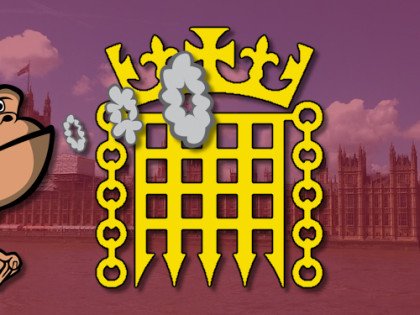“We’re today highlighting troubling evidence of the FCTC's deviation from its original objectives towards becoming a platform dominated by non-governmental organisation (NGO) activism,” says said Nancy Loucas, a public health policy expert, passionate advocate for tobacco harm reduction, and executive coordinator of CAPHRA.
This shift, she argues, has led to the systematic exclusion of harm reduction advocates and the media from crucial policy-making debates and meetings.
Providing evidence of the overreach and exclusion, CAPHRA's concerns stem from Nancy Loucas’ personal experiences and the broader negative treatment of consumers and global advocates of harm reduction by senior officials in the WHO FCTC and, in turn, national governments who have been advised to not engage with consumers under the guise of Article 5.3 of the FCTC.
“Despite the proven benefits of harm reduction strategies, such as electronic cigarettes and vaping products, in reducing the health impacts associated with tobacco use, these successful interventions are notably absent from FCTC discussions,” said Ms Loucas.
“This exclusion not only violates the human rights of individuals to participate in decision-making processes but also undermines the potential for comprehensive and effective tobacco control policies for people who smoke”.
Furthermore, CAPHRA is raising alarm over the exclusion of independent media from the Conference of the Parties (COP) meetings, the decision-making body of the FCTC.
Nancy Loucas explained: “This lack of transparency prevents public scrutiny and awareness of the policy decisions being made, further distancing the FCTC from its foundational principles of democratic, participatory, transparent, and inclusive governance.”
In light of these concerns, CAPHRA is urging governments to reconsider their involvement in the WHO FCTC.
“The FCTC has strayed from its path, prioritising the agenda of select NGOs over the well-being of the global population it seeks to protect,” Loucas states. “It's time for governments to demand transparency, inclusivity, and respect for human rights in the implementation of international health treaties.”
CAPHRA's call to action is not just about tobacco control; it's a plea for the integrity of international health policymaking.
“By allowing NGO activism to overshadow evidence-based harm reduction strategies and excluding critical voices from the conversation, the FCTC risks compromising its mission to improve public health,” Ms Loucas concluded.
The Coalition of Asia Pacific Tobacco Harm Advocates is a regional alliance of consumer tobacco harm reduction advocacy organisations. Its mission is to educate, advocate and represent the right of adult alternative nicotine consumers to access and use of products that reduce harm from tobacco use.
It says it, “remains committed to advocating for the rights of consumers in the Asia-Pacific region to access and use evidence-based, regulated, and properly marketed harm reduction products as a means of reducing the devastating impact of smoking-related diseases. We encourage further research, open dialogue, and collaboration with governments, health organisations, and stakeholders to ensure the best possible outcomes for public health.”
References:
- Coalition of Asia Pacific Tobacco Harm Reduction Advocates - https://caphraorg.net/
Dave Cross
Journalist at POTVDave is a freelance writer; with articles on music, motorbikes, football, pop-science, vaping and tobacco harm reduction in Sounds, Melody Maker, UBG, AWoL, Bike, When Saturday Comes, Vape News Magazine, and syndicated across the Johnston Press group. He was published in an anthology of “Greatest Football Writing”, but still believes this was a mistake. Dave contributes sketches to comedy shows and used to co-host a radio sketch show. He’s worked with numerous start-ups to develop content for their websites.
Join the discussion
Parliament Fears Two
The Department for Environment, Food and Rural Affairs faced questions from a Conservative MP and, oddly, a member of the Department for Environment, Food and Rural Affairs
Harm Reduction For The Rich
The United Kingdom risks becoming a harm reduction country only for the wealthy, according to Michael Landl of the World Vapers’ Alliance
Scotland Announces Single-Use Vape Action
A ban on the sale and supply of single-use vapes in Scotland is due to come into effect on 1 April 2025, under proposed legislation published today
Parliament
Andrea Leadsom has been quizzed by Rupa Huq and Derek Thomas about the promotion of vaping and support to those who want to quit






-listing400.jpg)




